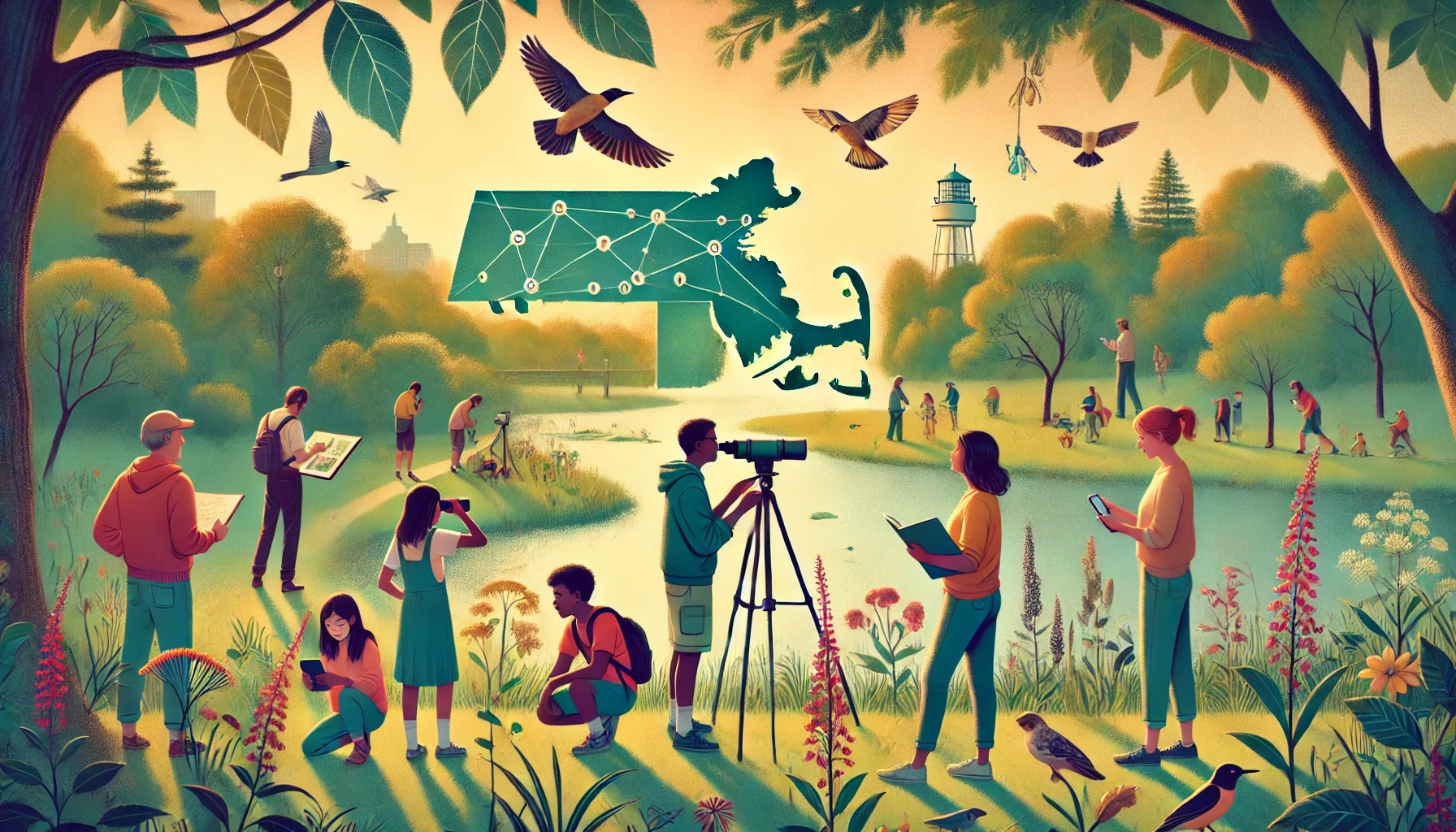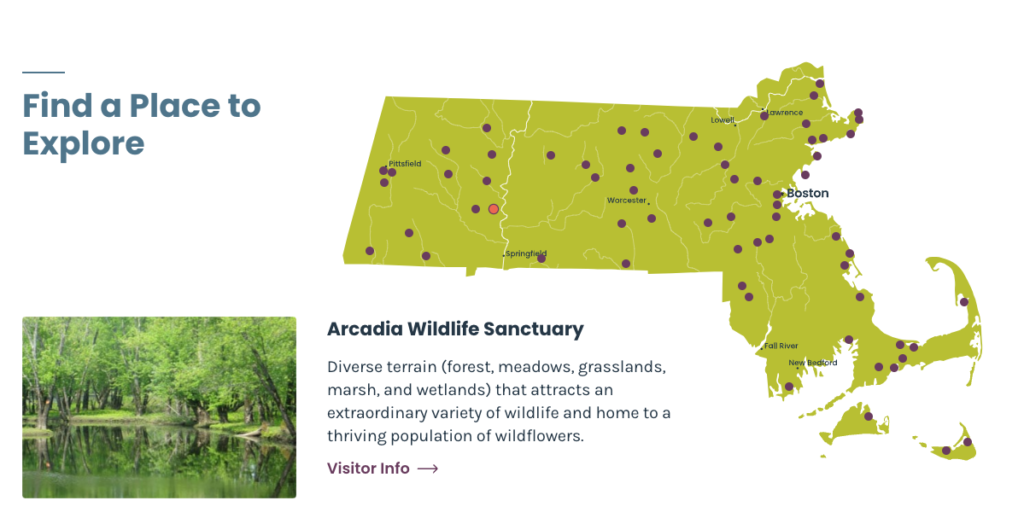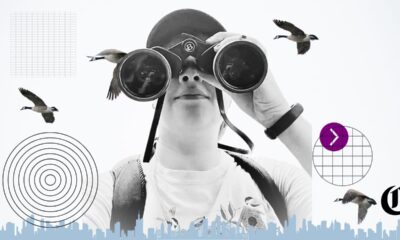Civic Science Observer
Mass Audubon is looking for community science data volunteers
Through a network of 107 wildlife sanctuaries and partner properties across the state, Massachusetts residents can easily find locations to immerse themselves in nature while gathering valuable data.

Mass Audubon is the largest nature-based organization in New England. Its community science projects offer Massachusetts residents a hands-on role in conservation in an effort to empower people to document changes in local ecosystems and contribute valuable data to scientific research.
The organization underscores that Massachusetts faces urgent environmental issues, including “the rapid loss of wildlife habitat, inequitable access to nature, and the threat of climate change.” These challenges impact biodiversity, community health, and climate resilience, underscoring the need for widespread environmental action.
Mass Audubon’s community science projects invite participants to engage in a variety of activities, such as monitoring bird populations, tracking seasonal changes in plants, and documenting wildlife sightings.
Participants contribute their observations through digital platforms like iNaturalist and eBird, where the data becomes part of extensive datasets accessible to researchers and conservationists.
For instance, tracking bird migration patterns offers scientists insight into how climate change and habitat loss are impacting natural behaviors, while plant life cycle observations help researchers understand how local flora adapt—or struggle—in response to environmental changes.
A key aspect of Mass Audubon’s community science projects is its accessibility. Through a network of 107 wildlife sanctuaries and partner properties across the state—including popular spots like the Boston Nature Center in Mattapan, Wachusett Meadow in Princeton, and Wellfleet Bay in South Wellfleet—residents can easily find locations to immerse themselves in nature while gathering valuable data.

These sanctuaries serve as hubs for community members to participate in guided activities or independently observe nature. For example, the ‘Buds, Leaves, and Global Warming’ project invites residents to track when plants bud and bloom each season, providing essential data on how rising temperatures affect native plant species.
Mass Audubon has designed the community science projects with an emphasis on inclusivity, welcoming people of all ages and backgrounds. By providing resources and support, the organization makes it easy for everyone, from families and students to retirees, to join in.
According to Mass Audubon, “No prior experience is required—just a willingness to explore,” a simple criterion that invites a broad range of participants and allows community projects to capture diverse observations across the state.
By participating, residents become part of a larger conservation mission, observing changes firsthand and contributing to the understanding of Massachusetts’ ecosystems.
As the community science initiative continues, a common question arises: what is the breakdown of resident groups participating in the community science projects?
The CS Media Lab is a Boston-anchored civic science news collective with local, national and global coverage on TV, digital print, and radio through CivicSciTV, CivicSciTimes, and CivicSciRadio. Programs include Questions of the Day, Changemakers, QuickTake, Consider This Next, Stories in Science, Sai Resident Collective and more.

-
 Audio Studio1 month ago
Audio Studio1 month ago“Reading it opened up a whole new world.” Kim Steele on building her company ‘Documentaries Don’t Work’
-
Civic Science Observer1 week ago
‘Science policy’ Google searches spiked in 2025. What does that mean?
-
Civic Science Observer1 month ago
Our developing civic science photojournalism experiment: Photos from 2025
-
Civic Science Observer1 month ago
Together again: Day 1 of the 2025 ASTC conference in black and white
Contact
Menu
Designed with WordPress























